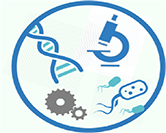Our Research
What do we do?
Our research involves an interdisciplinary approach using molecular genetics, biochemistry, cell biology, and structural biology to understand the infection biology of opportunistic Gram-negative bacteria at molecular and cellular levels. Burkholderia cenocepacia, Achromobacter species, and the Enterobacter cloacae complex are the current model organisms we use in different aspects of our research programme.
Why is it important?
Opportunistic infections pose a significant threat to human health, especially to people who benefit most from advancements in the treatment of genetic diseases, cancer, and organ transplantation, but who become immunosuppressed.
Our main goals are to elucidate how these opportunistic pathogens interact with innate immune cells (e.g., macrophage and epithelial cells) to promote or suppress inflammation, and the molecular basis of their extreme intrinsic resistance to antimicrobial agents, especially resistance to antimicrobial peptides and last resort antibiotic
Burkholderia cepacia complex bacteria (Bcc) and various Achromobacter species are a potential health risk for people with cystic fibrosis and other immunocompromising conditions.
These individuals commonly suffer from lung and airways infections that are very difficult to treat given the extraordinary resistance of these bacteria to clinically useful antimicrobials. Through our research, we hope to find novel ways to prevent or ameliorate the effect of these infections in susceptible people.
Enteric bacteria, such as Enterobacter cloacae complex isolates, are important opportunisitic multidrug resistant pathogens in the hospital setting. Very little is known about the infection biology of Enterobacter species despite these pathogens are a global health priority, as they are grouped within the ESKAPEE bacteria.
Lipopolysaccharide (LPS) is a complex glycolipid molecule located on the surface of Gram negative bacteria that is also a critical structural component of the bacterial outer membrane. Bacteria with defects in the LPS molecule are more sensitive to a variety of antibiotics and they can be easily killed by host defensive mechanisms such as the serum complement and antimicrobial peptides.
Therefore, by understanding how the LPS is made, assembled on the bacterial cell surface, and modified to reduce its interactions with antimicrobial peptides we hope to design inhibitors that will interfere with this processes, which may be useful as novel antimicrobials. Also, we are looking at ways to alter LPS biosynthesis at various levels to increase the overall permeability of the outer membrane to antibiotics and antimicrobial peptides.
Examples of key questions we currently investigate
- How opportunistic bacteria can survive the attack of antimicrobial cationic peptides and other antibiotics?
- How intracellular opportunistic bacteria delay phagosome maturation, phagosomal acidification, and the assembly of the macrophage NADPH oxidase?
- What is the role of specialized protein secretion systems (e.g., T3SS or T6SS) in bacteria intracellular survival?
- How opportunisitic bacteria adapt to replicate and/or survive in various environments including macrophage and epithelial cells?
- How bacterial antioxidant mechanisms protect essential bacterial metabolic pathways that are deemed to be critical for adaptation to different environments, including the lung and airways?
Optimal genetic tools are often lacking to manipulate resilient opportunistic bacteria. This is why we also develop new molecular tools and strains. For example, we have developed over the years novel tools to genetically manipulate Burkholderia, which we make available to the scientific community worldwide.

Are you interested in joining our laboratory? Then read more
- Do you enjoy adventure and exploration and don't care being frustrated from time to time?
- Have you ever wondered how does it feel to discover something new?
- You don't like the routine of a life without excitement
- You would like to explore the fascinating world of microbiology but you are not a microbiologist
- If the answer to all of the above is YES! click on any of the links below as appropriate
- Postdoctoral studies in the Valvano Lab
- PhD studies in the Valvano lab
- Master's studies in the Valvano lab
- Summer Internships in the Valvano lab
- Intercalated B. Sc. degree Research Projects in the Valvano lab